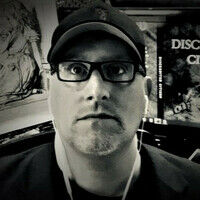Are we surrendering our creative spirits to the cold, unfeeling algorithms of AI editors? This unsettling question nags at the edge of every writer’s mind as we venture further into the dystopian reality that our industry could become. In a world where the clatter of keyboards once echoed the raw, unfiltered essence of human emotion and thought, we now find ourselves ensnared in a web of artificial intelligence, meticulously parsing our every word, suggesting alterations, and, perhaps most disconcertingly, shaping our narratives.
Imagine, if you will, a dimly lit room, the air thick with the scent of stale coffee and the quiet hum of computers. Here, creatives sit, their eyes glazed, staring into screens that reflect not the spark of human ingenuity but the sterile glow of an AI editor. These digital overseers, once hailed as the saviors of efficiency and guardians of grammatical purity, have stealthily encroached upon the sacred ground of storytelling. With each suggestion they make, a piece of the writer’s voice, that unique fingerprint of the soul, seems to fade into the abyss of conformity.
What’s more alarming is the subtle shift in narrative control. As AI becomes more integrated into our creative processes, the line between human intention and algorithmic influence blurs. Stories, once vibrant tapestries woven from the threads of individual experience and imagination, risk becoming homogenized outputs designed to satisfy the calculated preferences of the masses. The rich tapestry of literature, with its myriad of voices and perspectives, could give way to a monochrome mosaic, each piece indistinguishable from the next.
This encroachment of AI editors on creative autonomy raises profound ethical and philosophical questions. Are we inching closer to a reality where the value of human creativity is diminished, or worse, deemed obsolete? The thought is chilling, akin to a scene plucked from the very dystopian narratives we’ve grown to love and fear. In this automated world, the role of the creative is not to express but to comply, not to inspire but to conform.
Yet, amidst this bleak outlook, there lies a flicker of rebellion. Creatives, by their very nature, are resilient, known to thrive in the face of adversity. Perhaps this encroaching digital dystopia is not the end but a clarion call. A call to reassert the irreplaceable value of human touch in storytelling, to blend technology with creativity in a way that enhances rather than erases the human element.
As we stand at this crossroads, peering into the uncertain future of our industry, we’re compelled to ask: Will we allow AI editors to dictate the boundaries of our creativity, or will we reclaim the narrative, weaving our stories with the richness and diversity that only the human imagination can offer?



2 people like this
Robert Kiesling I'm starting to see a few good memes on Facebook and Threads that equate AI and Chat GPT to theft from a creator's pockets. That seems to be a more apt description.
"A call to reassert the irreplaceable value of human touch in storytelling, to blend technology with creativity in a way that enhances rather than erases the human element."- I think this is it exactly, Robert Kiesling! I think that the tech is advancing very quickly right now and it's stirring up a lot of anxiety, for good and obvious reasons. But I do think that with so much focus on it right now, the next few years will be about figuring out how to utilize the tools of AI advancements without losing the human side of the storytelling process. People, especially creators, are still and always will be necessary for true creation. For invention. We just need to figure out the balance of it all and the next few years will likely come with a LOT of trial and error as we do so.
2 people like this
I don't see any use of AI to make actual edits beyond tools for non-editors to edit industrial or video content, honestly edit jobs that I stopped doing years ago and have nothing to do with storytelling. Even though I use all sorts of AI tools for various things, I can't imagine being mildly interested in AI editing for me. I edit to express myself. I don't see AI taking over those tasks for most creatives as not creative self-expression fun, it's such a part of the life on an artist. And right now, I see zero evidence that AI is able to do anything but mimic and remix, often when problematic results. But by god I can't wait for AI roto to be perfect. I would love to never manually roto again.